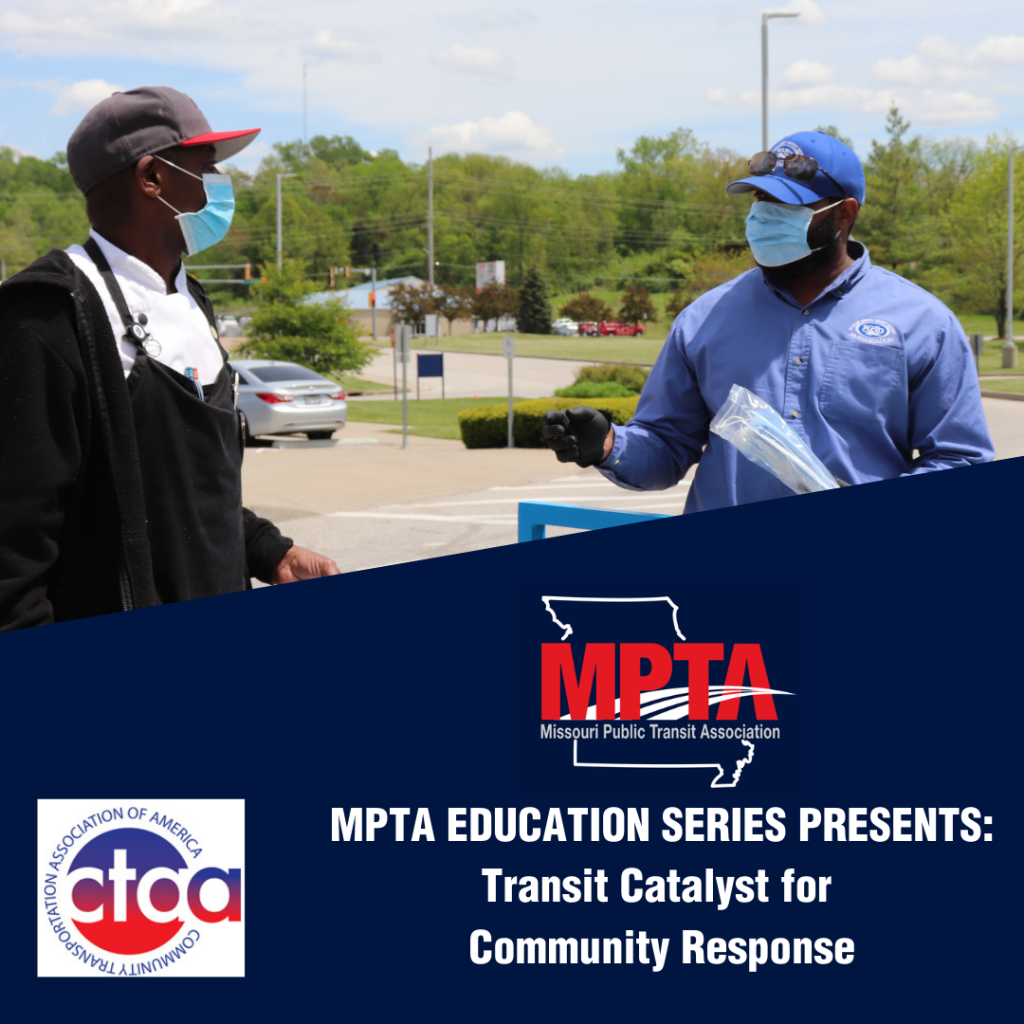MPTA Education Series highlighted the recent CTAA report, How the COVID-19 Response Shapes the Future of Transit. Panelists included CTAA Senior Communications, Events and Legislative Specialist Taylor Klocke and report author Stewart Mader who founded and leads VaxTransit.
“The silver lining of the pandemic is we were given an opportunity to change some things that needed changing but structures and status quo did not allow for us to do that. Nothing like a world-altering crisis to give transit an opportunity to make those changes,” Stewart Mader, author of CTAA report.
One example of pivoting to be innovative was to bring things to people when they could not bring people to things. For example, Minnesota transit agency SMART partnered with Hormel Foods to combat food insecurity. Hormel Foods partnered with local diners, restaurants to make meals for those in need. SMART then delivered these meals to individuals in the communities.
Missouri transit providers were also highlighted in the report. KCATA stood out with partnership with Truman Health System and Kansas City Public Housing Authority. The goal of the partnership was to make sure that communities who resided in public housing had opportunity to be vaccinated. The Kansas City Public Housing Authority reached out to residents, identified those in need of vaccines, and then RideKC provided shuttles to vaccine distribution points at Truman Health Centers. Another example was OATS Transit. OATS provided more than 1.4 million trips prior to the pandemic in all 87 counties in Missouri. In 2020, they provided 1.05 million trips even during the pandemic. OATS took a special look at protocols and attention to detail while helping to ensure access including asking customers to turn heads away while boarding.
The report highlighted case studies of agencies across the country in innovative ways to continue to serve customers during the pandemic. Mader highlighted six recommendations that came out of the report for the transit industry.
- Make public health a new focus area for transit.
- Create more equitable fare payment.
- Focus federal and state support on frequent and reliable service.
- Strengthen hiring and career development
- Redesign routes and run more frequent service all day
- Expand Demand Response.
For complete report: https://www.stewartmader.com/how-covid-19-response-shapes-the-future-of-transit/
